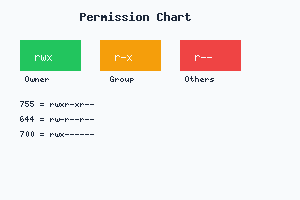Windows 10 End of Support: Why Millions Are Switching to Linux

🎯 Key Takeaways
- The Great Windows 10 Exodus: A Historic Opportunity for Linux
- Why the Mass Migration?
- Linux in 2025: Ready for Mainstream
- The Environmental Impact
- Community Support: The EndOf10 Movement
📑 Table of Contents
- The Great Windows 10 Exodus: A Historic Opportunity for Linux
- Why the Mass Migration?
- Linux in 2025: Ready for Mainstream
- The Environmental Impact
- Community Support: The EndOf10 Movement
- Real-World Success Stories
- Making the Switch: What to Expect
- The Future Is Open
- Getting Started
- Related Resources
- Latest Linux Releases (2025)
The Great Windows 10 Exodus: A Historic Opportunity for Linux
October 14, 2025, marks a pivotal moment in computing history. On this date, Microsoft officially ended support for Windows 10, leaving hundreds of millions of users at a crossroads. With Windows 10 still commanding roughly 41% of global Windows desktop usage according to StatCounter’s September 2025 figures, the scale of this transition is unprecedented.
📑 Table of Contents
- The Great Windows 10 Exodus: A Historic Opportunity for Linux
- Why the Mass Migration?
- The Windows 11 Hardware Barrier
- The Cost Factor
- Linux in 2025: Ready for Mainstream
- Modern Linux Distributions Are User-Friendly
- Hardware Support Has Never Been Better
- Gaming on Linux Is Now Reality
- The Environmental Impact
- Community Support: The EndOf10 Movement
- Real-World Success Stories
- Educational Institutions
- Small Businesses
- Individual Users
- Making the Switch: What to Expect
- The Transition Is Easier Than You Think
- Common Concerns Addressed
- The Future Is Open
- Getting Started
- Related Resources
- Latest Linux Releases (2025)
For the Linux community, this represents the most significant opportunity in decades to welcome new users and demonstrate that open-source alternatives are not just viable—they’re often superior.
Why the Mass Migration?
The Windows 11 Hardware Barrier
Microsoft’s strict hardware requirements for Windows 11 have created an unexpected barrier for millions of users. The operating system demands:
- 64-bit compatible CPU with specific generation requirements
- UEFI firmware with Secure Boot capability
- TPM 2.0 (Trusted Platform Module)
- Minimum 4GB RAM and 64GB storage
These requirements exclude countless older but perfectly serviceable machines that run Windows 10 without issues. For many users, their current hardware works flawlessly for daily tasks like web browsing, email, document editing, and media consumption—but Microsoft’s arbitrary cutoff forces an uncomfortable decision.
The Cost Factor
Users facing the Windows 10 end-of-life have three official options:
- Purchase new hardware meeting Windows 11 requirements (potentially $500-2000+)
- Subscribe to Extended Security Updates (ESU) at $30 for one year of security patches only
- Accept security risks by continuing to use an unsupported operating system
For budget-conscious users, families, schools, and businesses with functional hardware, none of these options are appealing. Linux offers a fourth path: free, secure, and actively maintained operating systems that breathe new life into existing hardware.
Linux in 2025: Ready for Mainstream
Modern Linux Distributions Are User-Friendly
Gone are the days when Linux required command-line expertise and hours of configuration. Today’s Linux distributions offer:
Ubuntu 25.04 “Plucky Puffin” – Released April 17, 2025
- Powered by Linux kernel 6.14 with improved hardware support
- GNOME 48 desktop environment with intuitive interface
- One-click software installation through Ubuntu Software Center
- Excellent Windows application compatibility via Wine and Proton
Linux Mint Debian Edition (LMDE) 7
- Familiar Windows-like interface for easy transition
- Based on stable Debian 13 “Trixie”
- Pre-installed with essential applications
- Excellent for older hardware
Zorin OS 18
- Specifically designed to feel familiar to Windows users
- Beautiful, polished interface
- Strong Windows app compatibility
- Lite edition for older machines
Hardware Support Has Never Been Better
Linux kernel 6.14 and the upcoming 6.18 release bring extensive hardware improvements:
- Broad device compatibility covering most consumer hardware
- Improved energy efficiency extending laptop battery life
- Enhanced graphics support including better Intel Arc and AMD GPU drivers
- Gaming performance boosts with up to 50% faster frame rates for Windows games through Wine
Gaming on Linux Is Now Reality
The Steam Deck’s massive success has validated Linux as a gaming platform:
- Proton compatibility layer runs thousands of Windows games seamlessly
- Native Linux games from major publishers
- Performance parity with Windows in many titles
- No telemetry or forced updates interrupting gameplay
The Environmental Impact
Consumer advocates and repair-rights groups have raised alarms about the environmental consequences of Windows 11’s hardware requirements. Forcing users to replace functional computers accelerates e-waste and disproportionately affects lower-income households.
Linux offers an environmentally responsible alternative:
- Extend hardware lifespan by 5-10 years
- Reduce electronic waste significantly
- Lower carbon footprint by avoiding unnecessary manufacturing
- Support sustainability through open-source development
Community Support: The EndOf10 Movement
The Linux community has mobilized to help Windows 10 refugees through initiatives like the EndOf10 movement, which coordinates:
- Local installation help events in communities worldwide
- Online tutorials and guides for smooth migration
- Hardware compatibility checking tools
- Windows application alternatives databases
- Volunteer technical support forums
Real-World Success Stories
Educational Institutions
Schools across Europe and South America have migrated entire computer labs to Linux, saving millions in licensing fees while providing students with modern, secure computing environments.
Small Businesses
Companies have discovered that Linux offers:
- Zero licensing costs freeing budget for business growth
- Enhanced security with fewer virus and malware threats
- Greater stability with less downtime
- Full control over updates and maintenance schedules
Individual Users
Testimonials from Windows 10 migrants consistently highlight:
- Faster boot times and application performance
- Cleaner interface without ads or bloatware
- Respect for user privacy
- Sense of ownership and control over their computing experience
Making the Switch: What to Expect
The Transition Is Easier Than You Think
Modern Linux distributions include migration tools that:
- Import your files from Windows partitions
- Find Linux alternatives for your Windows applications
- Maintain dual-boot options if you need occasional Windows access
- Preserve your workflow with familiar application equivalents
Common Concerns Addressed
Will my documents work?
- LibreOffice opens Microsoft Office files flawlessly
- Google Docs, Office 365 work perfectly in web browsers
- PDF, image, and media files work identically
What about my applications?
- Most popular software has Linux versions (Chrome, Firefox, VLC, GIMP, Blender)
- Wine and Proton run many Windows applications
- Web-based alternatives available for most needs
Is it secure?
- Linux is inherently more secure than Windows
- Viruses and malware rarely target Linux desktop users
- Regular security updates continue for years
- No forced telemetry or data collection
The Future Is Open
As we move past the Windows 10 end-of-support deadline, millions of users are discovering that Linux isn’t just a free alternative—it’s often a better alternative. The combination of:
- Modern, polished desktop environments
- Excellent hardware support
- Strong application ecosystems
- Vibrant, helpful communities
- Respect for user freedom and privacy
…makes 2025 the most compelling year ever to make the switch to Linux.
Getting Started
If you’re considering Linux as your Windows 10 replacement:
- Test it first – Download a live USB image and try Linux without installing
- Choose a beginner-friendly distribution – Ubuntu, Linux Mint, or Zorin OS
- Join the community – Reddit’s r/linux4noobs, Ubuntu Forums, and local user groups
- Start simple – You can always learn advanced features later
- Keep a backup – Standard advice for any OS migration
The end of Windows 10 support isn’t a crisis—it’s an opportunity to discover a computing experience built on principles of freedom, community, and user empowerment.
Welcome to Linux. Your migration starts here.
Related Resources
- Official Ubuntu Download
- Linux Mint Download
- Zorin OS Download
- ProtonDB – Gaming Compatibility Database
- AlternativeTo – Find Linux Software Alternatives
Latest Linux Releases (2025)
- Ubuntu 25.10 “Questing Quokka” – Linux kernel 6.17, GNOME 49
- Linux Kernel 6.18 RC – Currently in testing phase
- Firefox 145 Beta – First release to drop 32-bit Linux support
- Blender 5.0 Beta – Major 3D creation suite update
Stay tuned for more Linux news and migration guides as we follow this historic shift in the desktop computing landscape.
Was this article helpful?
About Ramesh Sundararamaiah
Red Hat Certified Architect
Expert in Linux system administration, DevOps automation, and cloud infrastructure. Specializing in Red Hat Enterprise Linux, CentOS, Ubuntu, Docker, Ansible, and enterprise IT solutions.


